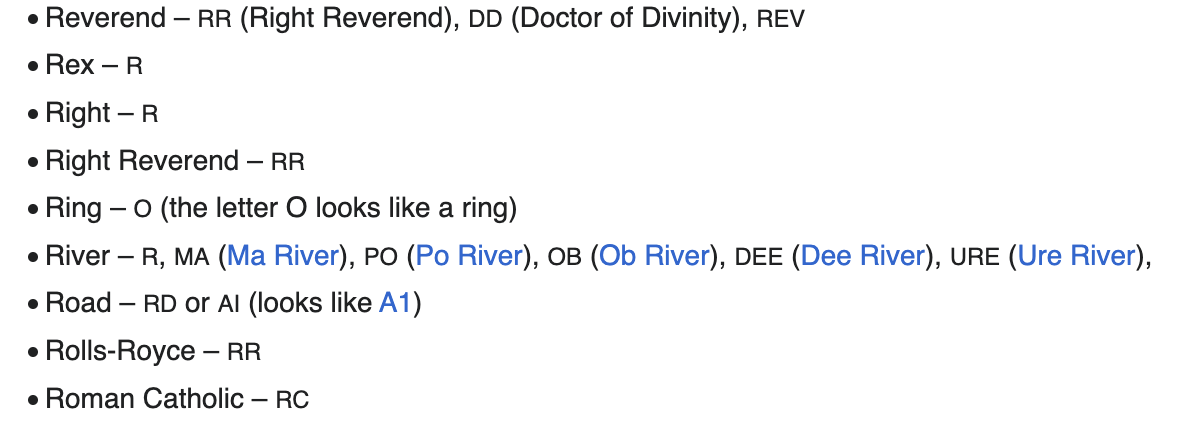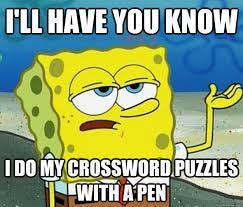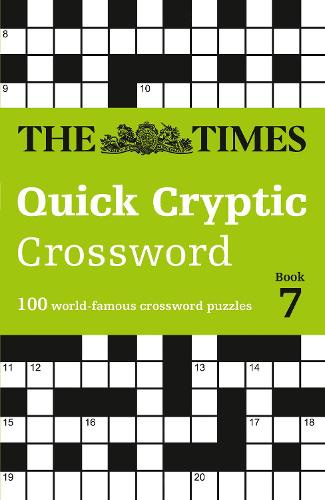i want to understand cryptic crosswords
why doing cryptic crossword is class warfare
In a bid to become *even* cooler than I currently am I have decided that I want to learn how to do cryptic crosswords. They have always teased and intrigued me from the back of an abandoned Metro on the bus or the Saturday Guardian Puzzle page (when I used to get it for the books magazine RIP). But with no knowledge of cryptic crosswords reading the clues feel like a series of nonsense phrasing and riddles designed to make you feel particularly inept:
16 across: One handling goods in shop interrupted by woman and daughter (9)
1 across: Making pencil unusable is the last straw (8,5)
5 down: Got up, put on a white robe (4)
They are similar enough to a normal crossword clue that you can be easily fooled into thinking they can be approached the same. In a normal crossword, you are asked to think of a synonym for a word, phrase or name of a person, place or object based on the given clue. This in itself is enough of a challenge to be honest. I have fond memories of trying to sneak answers onto my mum’s half-finished crosswords left on the dining room table, convinced that I’d managed to match her lettering perfectly so she would think she’d entered the solutions herself. Only later to be met with shouts of ‘Who’s messed up my crossword!?’ because of course I rarely got the answers right. When it comes to cryptic crosswords there are a few more hurdles to get over to even understanding the clue let alone the answer. So allow me, a complete novice who can only do beginner puzzles and not very well at that, to explain to you how they operate.1
There are several different kinds of cryptic clues and ways of solving them that you have to learn to spot and then decipher. The first key piece of information is that somewhere, usually at the beginning or end of the clue, will be the literal definition of the answer, just like in a crossword clue. The rest are instructions on how to solve it. Identifying each part, the definition and the cryptic clue, helps you to understand what type of puzzle you are dealing with and what you need to do.
Let’s use an example:
1 Across: Walk, run, climb using this (4,6)
The literal definition clue here could be either ‘walk’ or ‘climb using this’, more likely it’s going to be the latter and this becomes clear when we think of synonyms for the other two words: walk = STEP, run = LADDER (as in a ladder in your tights).
And so the answer is: STEP LADDER
Here the key to solving the clue was to be able to spot the literal definition and they think laterally about other synonyms for words in the clue. Because the cryptic clues must form a (semi) coherent sentence there are often words with multiple meanings used to hide the true answer. So here because ‘run’ is in the same sentence for ‘walk’ it intentionally misleads us to think about ‘run’ as a verb (the act of running) rather than the noun required to reach the solution.
Now, at this point you are either thinking eff all the way off that’s stupid I’m never doing that why would anyone care about this OR like me, you might think, this is the coolest shit I ever heard — words are rad.
Let’s look at another example from earlier:
16 across: One handling goods in shop interrupted by woman and daughter (9)
This clue is what is sometimes referred to as a ‘bits and pieces’ clue and it’s asking us to think of some synonyms or common abbreviations and arrange them to fit a description of the literal definition, which in this case is ‘one handling goods’. That leaves us with the clue ‘shop interrupted by woman and daughter’.
Another word for a shop is a STORE, ‘woman’ is often used in cryptic clues to mean EVE (the first woman and our first hint at the role Christianity plays in cryptic clues) and daughter is often abbreviated to D. The phrase ‘interrupted by’ is telling us that the word STORE needs to ‘wrap’ around the other two two clues. So EVE D when inserted between ST and ORE gives us the solution: STEVEDORE. A name for a person who unloads goods at a dock and yes I had to look that up.
There are many other types of clues: some are anagrams, or use the first letter of a phrase to spell out the answer. Others have the solution hidden between two words, like 21 Across: Show lettuce concealing little bird (5) = OWLET (look between the words ‘show’ and ‘lettuce’). While some cryptic clues like the ones just mentioned offer up instructions for solving, others are little riddles within themselves and the whole phrase is both the definition and the clue. Here’s an example:
23 Across: Remember an imaginary animal? (4,3,4)
The literal definition is ‘remember’ and so to reach the clue we have to think of phrases that might mean to remember something. After a bit of thought this should lead you to: BEAR IN MIND. Which taken literally would be an animal made from your imagination since it only exists in your head. (It’s of course intentionally misleading as an imaginary animal might make one think of a unicorn or a jacklope etc). Let me tell you when I got that one I felt like a god.
But there are other times when I simply have no clue (haha) what the answer is or even how to reach it because there are too many references that completely elude me. For instance when a clue says ‘school’ it might mean ETON, and when it says ‘duck’ it might mean O for a cricket score. When a clue uses ‘minister’ it might mean MP but it could also be REV (for Reverend). Bishop could be B (for chess) or RR (for Right Reverend). Religion could be RC (Roman Catholic) or COE (Church of England) — as far as I can tell other religions don’t get a fun abbreviation. All of these references feel so painfully English. There is a kind of private school-boy in-jokiness to needing to know what all these little phrases could possibly be on about. Sports such as cricket, rugby, golf and chess feature frequently. As do references to politics and journalism. Although ‘posh’ can be a synonym for TORY which is tellingly self-aware. That The Times is the go-to cryptic crossword book should tell you all you need to know. Cryptic crosswords feel middle class to me in the way that Yotam Ottolenghi and a house deposit feel: they were not meant for people like me but society tells me I should want them anyway.

Occasionally, a clue will break through that seems out of place in this very English game:
10 Across: Drugs reportedly providing relief (4)
The clue is a homophone, indicated by the phrase ‘reportedly’, the simple definition is ‘providing relief’. The answer is EASE — a pun on ‘Es’ the slag name for ecstasy. When I got the answer I actually laughed out loud. I had spent too long thinking of slang names for cocaine, which seemed like a better fit for a Times crossword clue but maybe that’s on me.
Sometimes doing a cryptic crossword makes me feel like a class traitor (more than usual for a nominally working-class girl that works in the arts) and that is silly because why should the middle classes get to gatekeep crosswords with their smug inside jokes about boarding schools and abbreviations for Rugby Union?2 Every time I get a clue it’s an enjoyable kind of middle finger to the posh-os because I understand them too. I don’t know if there is any actual evidence that cryptic crosswords are mostly enjoyed by the middle class. I think it’s more the perception I had of them growing up. In my mind, a certain kind of person does cryptic crossword puzzles and it’s someone with an island counter in their kitchen who gets The Sunday Times, but only for the supplements. The kind of person whose grandfather was at Bletchley Park and knows how to work an Aga3. They are the default solver in my mind. And yet that can’t possibly be true. And while my mum has never solved a cryptic crossword in her life she certainly can rattle through any normal crossword and gets more answers right than me on University Challenge without having gone to university.
It’s not a question of intelligence (duh) it’s a question of spheres of reference (duh). I don’t want to have to learn about rowing and nautical terms and abbreviations for every kind of middle England, Church of England vicar. But I need to because I’m really bad at cryptic crosswords still. I can get about 50% of the clues myself and the rest I either have to look up in a dictionary or just downright cheat to find the answer. However I have decided this is part of my learning process, since once I know the answer I can work backwards to understand the clue. But I also don’t mind being a bit bad at them. I have fun either way and struggling with a clue for ages to then look up the answer and have everything click into place is its own kind of bitter pleasure. When it’s a word I should have been able to guess I can berate myself to try better next time and when it’s a word I’ve never heard of (I return again to STEVEDORE???) I can reassure myself I probably would never have got it anyway. What keeps me going is that sweet sweet moment of solving. The pleasing ah-ha of discovery and slotting the words into place. The reward: to pencil in each letter with a deliberate casualness and thus the rest of the puzzle becomes that little bit easier to solve. I would just prefer fewer clues about Tories please.
For a better guide, I would recommend this YouTube channel or this beginner’s guide on solving.
I am as always being rather facetious here as there is probably an interesting history of how cryptic definitions and abbreviations came about and what references they were built on. But I would also like to hear a critique of these assumed ‘universal’ references which seem to be relatively unchanged since the 1920s.
Literally the puzzle I started after writing this involved the clue: Gang mad that odd characters are not in range (3) You get to the solution AGA by taking every other letter of gAnG mAd.






I literally said “what the fuck” out loud at STEVEDORE. You have one billion times more patience than I do.
Excellent piece, you’re sending me back to the Guardian cryptic after many years..